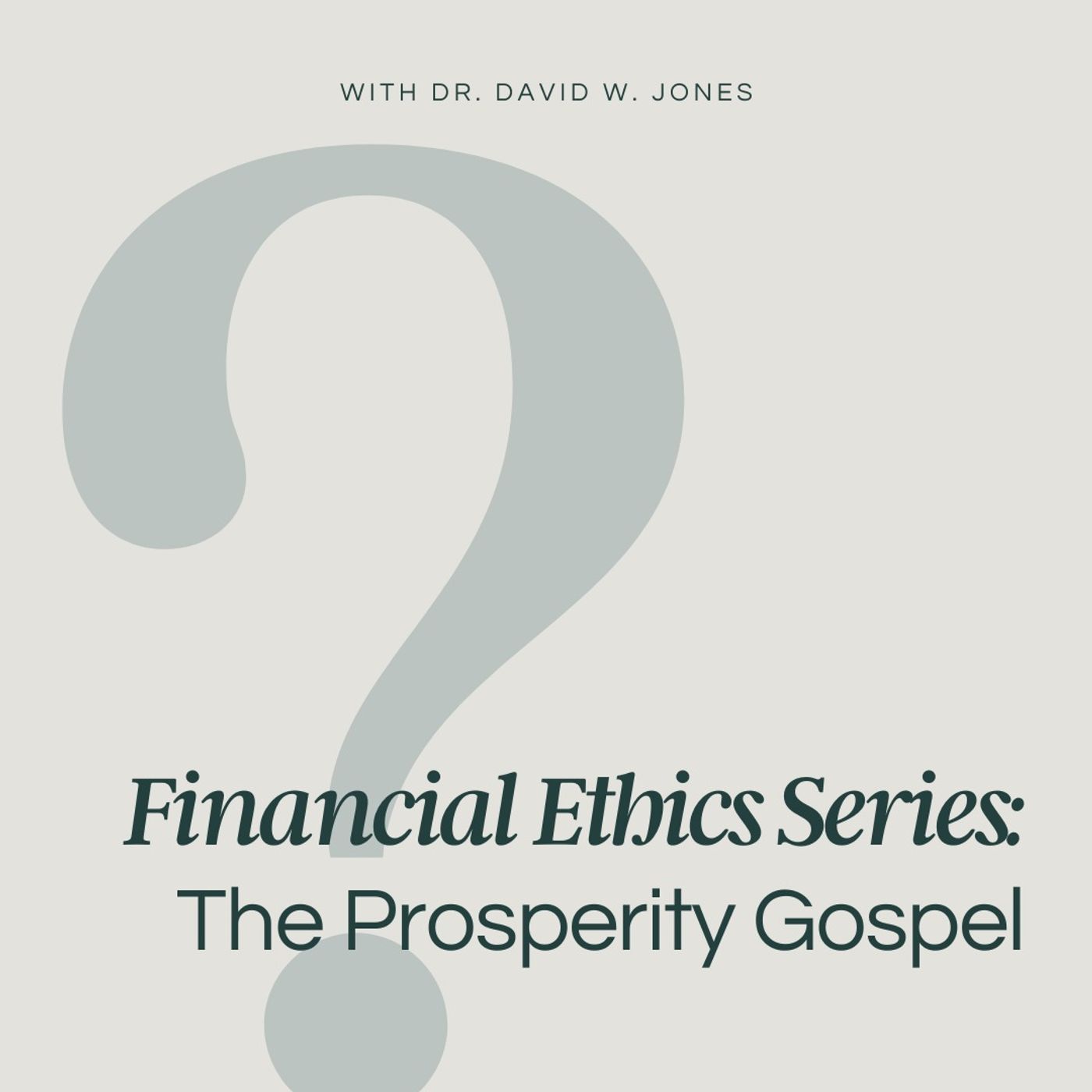Financial Ethics Series: The Prosperity Gospel with Dr. David W. Jones
- Author
- FaithFi: Faith & Finance
- Published
- Wed 23 Jul 2025
- Episode Link
- https://www.faithfi.com/
“Blessed are the poor in spirit, for theirs is the kingdom of heaven.” — Matthew 5:3
In the final episode of our Financial Ethics series, we’re tackling a message that promises health and wealth—but often leads to heartache: the prosperity gospel. Dr. David W. Jones joins us to unpack its dangers and point us back to a truly biblical view of blessing and provision.
Dr. David W. Jones is Senior Professor of Christian Ethics at Southeastern Baptist Theological Seminary. He holds a Ph.D. in Christian Financial Ethics and is the co-author of Health, Wealth, and Happiness: How the Prosperity Gospel Overshadows the Gospel of Christ by Dr. W. Jones and Russell S. Woodbridge.
Faith Is Not a Transaction
One of the most dangerous ideas in the prosperity gospel is that faith guarantees financial prosperity. It treats faith like a force—a tool believers can wield to compel God’s blessings.
But biblical faith isn’t self-generated or transactional. It is a gift from God, a response to His revealed grace, and a means by which we trust Him, not a lever to gain wealth. Faith is “the eyesight of the soul”—deeply rational and rooted in the truth of who God is, not in wishful thinking or material expectations.
Prosperity theology often preaches a “faith formula”: believe hard enough, and you’ll be rewarded. But this distorts faith into a mechanism for personal gain. Hebrews 11:1 tells us that faith is “the substance of things hoped for, the evidence of things not seen.” It’s not irrational optimism—it’s a reasoned trust in the unseen promises of God.
We should view faith not as a way to escape hardship or secure abundance but as a path of trusting God in all things, including suffering.
The Problem with Escaping Suffering
One hallmark of the prosperity gospel is its aversion to suffering. But as Jones points out, suffering is part of living in a fallen world—and it’s not something Scripture tells us to avoid at all costs. In fact, passages like 1 Peter 4:12 and 2 Timothy 3:12 remind us that suffering is to be expected for faithful followers of Christ.
Rather than hinder our faith, suffering refines it. Suffering is the crucible of character. It’s often through trials that we grow closest to Christ and are shaped into His likeness.
God's Provision Comes Through Work
Another distortion in prosperity teaching is the expectation of windfalls—blessings that come without effort. But God’s design for provision is through work. From the beginning, humans were created to labor and create, reflecting the image of God.
Working, creating, and flourishing through effort honors our design and brings fulfillment. Attempts to bypass God’s design through get-rich-quick schemes ultimately violate our dignity and God’s intended path for flourishing.
Prosperity preachers often misuse Scripture to back their claims. One example is 2 Corinthians 8:9: “That though He was rich, yet for your sakes He became poor, that you through His poverty might become rich.”
Taken out of context, it may sound like a promise of material wealth. But in its context, Paul is referring to our spiritual poverty and Christ’s sacrifice to make us spiritually rich—context matters. Misreading Scripture to fit a materialistic theology distorts the gospel’s central message.
Giving as Grace, Not Greed
Prosperity theology often frames giving as a transaction: sow a seed to receive a harvest. But biblical generosity isn’t about personal return—it’s about grace.
True giving flows from love for God and neighbor. We give not to get, but because we’ve already received so much. Our stewardship reflects our gratitude, not our greed. The heart of biblical giving is a response to God’s grace, not a strategy for personal gain.
Make your life about Christ, not your increase, not your own prosperity, but about flourishing in the image of His Son.
That’s the true antidote to the prosperity gospel. We aren’t promised wealth, ease, or success. But we are promised Christ—and in Him, we find every blessing that matters.
On Today’s Program, Rob Answers Listener Questions:
- I'm 64 and planning to retire within the next year. I have approximately $10,000 that I won’t need for income, and I’m seeking guidance on how to invest it wisely. I’m especially interested in options that align with biblical values and reflect my faith in the companies I support.
- My wife and I are approaching retirement. We’re financially secure, and our home is fully paid off. One concern I have is not having long-term care insurance. I’m considering either a reverse mortgage or a home equity loan to cover potential long-term care expenses, but I’d like to understand the pros and cons of each option before moving forward.
Resources Mentioned:
- Faithful Steward: FaithFi’s New Quarterly Magazine (Become a FaithFi Partner)
- Health, Wealth, and Happiness: How the Prosperity Gospel Overshadows the Gospel of Christ by Dr. David W. Jones and Dr. Russell S. Woodbridge
- Understanding Reverse: Simplifying the Reverse Mortgage by Dan Hultquist
- Wisdom Over Wealth: 12 Lessons from Ecclesiastes on Money
- Look At The Sparrows: A 21-Day Devotional on Financial Fear and Anxiety
- Rich Toward God: A Study on the Parable of the Rich Fool
- Find a Certified Kingdom Advisor (CKA) or Certified Christian Financial Counselor (CertCFC)
- FaithFi App
Remember, you can call in to ask your questions most days at (800) 525-7000. Faith & Finance is also available on the Moody Radio Network and American Family Radio. Visit our website at FaithFi.com where you can join the FaithFi Community and give as we expand our outreach.
